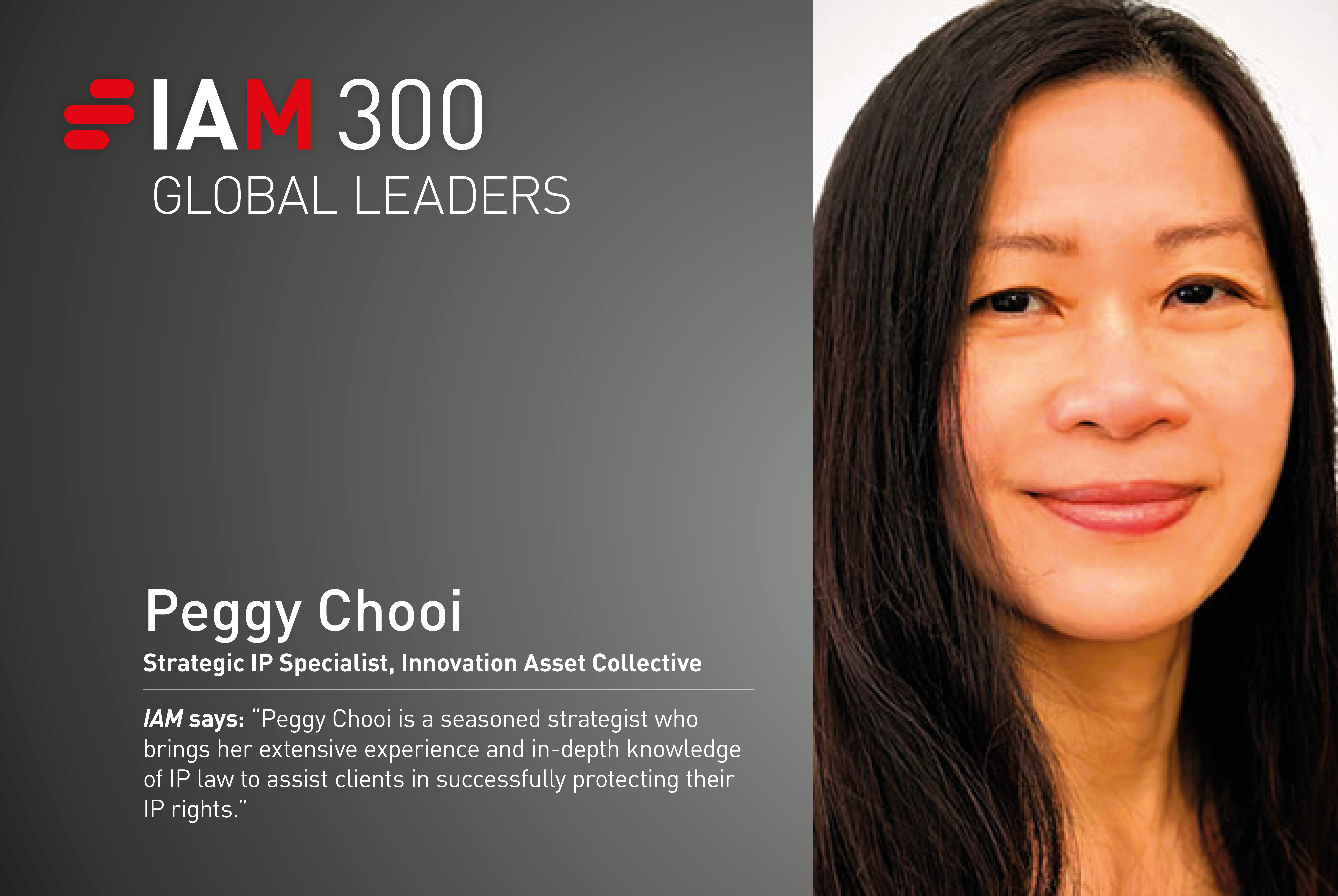Peggy Chooi
You have collaborated extensively with Fortune 500 companies and SMEs over your career. What are the major differences in managing such different client relationships?
Fortune 500 companies have sophisticated in-house and sometimes regional IP teams that handle different portfolios of patents, trademarks, copyright and enforcement work. They have highly-trained professionals as well as comprehensive IP processes at their disposal to ensure that every portfolio is managed as efficiently and strategically as possible. Fortune 500 companies have systematic trademark clearance, invention capture and portfolio management procedures, and often well-established communication protocols with service providers from around the world. In time, stakeholders will understand their roles, and IP generation, protection, commercialisation and enforcement processes will become seamless and highly efficient. Fortune 500 companies have huge bargaining power to dictate the level of service and IP training from service providers.
These are all advantages that SMEs don’t usually enjoy. SME clients might require a lot of hand-holding and guidance. Service providers must – and rightly so – explain in detail the rationale for every process and each step along the way. This requires a lot of time and patience. Often, SMEs operate under tight budgets and cannot afford the level of service that they require from service providers. For these reasons, they tend to adopt reactive, short-term patchwork and band-aid approaches to intellectual property that produce inconsistent results for the business. Innovation Asset Collective (IAC) plays a critical role educating SMEs about intellectual property, equipping them with the foundational and business-centric IP knowledge needed to recognise the intangible assets that they own, and how best to work with service providers to protect them.
How is Innovation Asset Collective adapting its internal strategy to manage the growing matter of tech convergence?
The transformational capabilities of computing power, AI and AI-enabled technology and innovations are already impacting the data-driven cleantech industry. These impacts are not just technological, but legal (including intellectual property), ethical, social and economic as well. IAC’s integrated suite of programmes and services are built to be adaptive, agile and responsive to this rapidly evolving technological landscape. IAC is a young, dynamic and innovative organisation. Our team of experts across a diverse range of fields, whether in education, intellectual property or business, are thought leaders in their respective areas. We are constantly learning and acquiring new skills, engaging and working with external partners, experts and stakeholders. IAC is well positioned to support the next generation of Canadian data-driven cleantech companies and serve their needs effectively.
Which of the deals that you have worked on are you most proud of – and why?
From the early years of my career, I’m most proud of having assisted a law firm in the expansion of its presence in Asia and learning the intricacies of setting up a new law practice. I assisted in the licensing programme of two multinational, high-tech companies well-known in the consumer products,communications and research fields. I’ve learned that successful global patent licensing programmes involve multiple stakeholders and require extensive research. This includes a comprehensive understanding of the relevant ecosystem, including your competitors, various levels of governmental approvals, and the requirements and laws of the countries you are operating in. At another firm, I successfully managed an internal IP team, and helped clients to develop IP strategies and manage their country or global IP portfolios. More recently, I am most proud of supporting small businesses and helping them to take concrete and practical steps to realise the potential that intellectual property has for their businesses. There is a growing understanding among SMEs that intangible assets in the form of data and intellectual property are accessible for them to leverage their business growth. IAC members have shown remarkable success in building IP portfolios that have culminated in attracting collaborations, investments and funding from across the ecosystem.
Peggy Chooi
Strategic IP Specialist
[email protected]
Peggy Chooi is a member of the Ontario Bar and a registered trademark agent in Canada and the United States (representing trademark owners from Canada). Before moving to Canada, she was a partner in the IP department of a reputable law firm in Asia. Ms Chooi continued in private law practice in Canada before joining Innovation Asset Collective. Her academic credentials include an LLB from the University of London and an MSc in IT from Staffordshire University, England.
